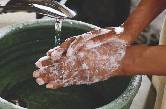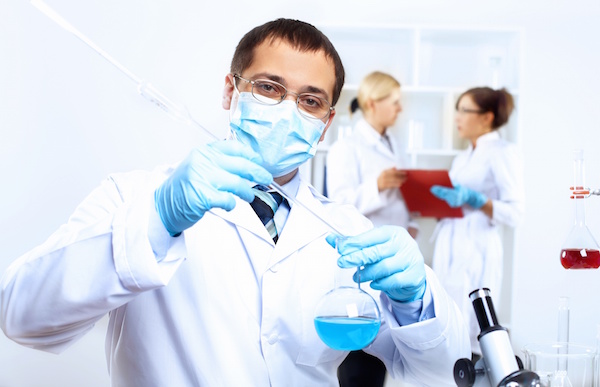
THURSDAY, Dec. 29 (HealthDay News) — Following mothers’ advice may have played a big role in averting a major health crisis.
Fears of the H1N1 flu virus reached a fever pitch last winter, with public health officials fearing a widespread outbreak caused by short supplies of the needed vaccine. But an epidemic was averted, and some health experts believe that’s because more people than ever before regularly washed their hands.
Hand-washing in the United States has become a widespread habit, according to the American Society for Microbiology and the American Cleaning Institute. They released a study in September finding that 85 percent of people washed their hands in public restrooms in 2008, the highest levels observed since they began researching hand-washing habits in 1996.
And though there’s no direct scientific evidence that hand-washing fended off H1N1 long enough for a vaccine to be developed and distributed, the head of the American Public Health Association said he believes that good hygiene very likely played a prominent role in the virus never catching fire in the United States.
“Hand-washing is really the cornerstone of good sanitation and good hygiene,” said Dr. Georges Benjamin, the group’s executive director. “Prior to having a vaccine, the things we had to rely on were covering up your nose and mouth when you sneeze, washing your hands as frequently as you could and avoiding hand-to-hand contact.”
People’s hands regularly pick up bacteria and viruses when they come in contact with other surfaces, said Jeff Dimond, a spokesman for the U.S. Centers for Disease Control and Prevention.
“Someone else may have handled a doorknob, a keyboard, a cup, a handrail — you don’t know,” Dimond said. “And the flu virus can live up to five hours on these surfaces. Your eye itches and you scratch your eye and bingo, that’s how you get the virus into you.”
The best way to rid hands of these infectious agents is by washing them. However, hands have to be washed properly, something many people fail to do, Benjamin and Dimond said.
First, you must use soap and warm water. Benjamin said that just sprinkling water on your hands and then drying them does little to rid them of viruses.
“Soap helps break up the grease, soil and dirt,” he said. “Within the grease and the dirt, organisms can reside. You need to use soap and warm water to break that up.”
Don’t worry about using antibacterial soap for day-to-day hand-washing. Just about any type of soap that creates lather will work. “Antibacterial soaps are not necessarily any better unless you’re in a surgical or medical environment,” Benjamin said.
Next, you want to scrub your hands together vigorously, being sure to rub all the surfaces of your palms and fingers. The friction is what dislodges viruses from the skin. “You want to lather up all of your hands and you want to work all that lather in,” Dimond said.
Be sure to take your time when washing your hands, too. People who rush through hand-washing might not completely scrub off all the germs. The CDC recommends that people wash for at least 20 seconds, enough time to hum the “Happy Birthday” song to yourself twice.
Once you’ve finished washing, be sure to thoroughly rinse your hands. Rinsing washes away the dirt, grime and viruses along with the soapy lather.
Finally, dry your hands. Wet hands pick up viruses from surfaces more easily than dry hands. “If you’ve got wet hands, the minute you touch something else, you’re going to pick up something else,” Benjamin said. Hands left wet or damp after hand-washing also can become dry and cracked, providing viruses with another place to latch onto and hide.
People should wash their hands at specific times during the day, according to Benjamin and the CDC, including:
- Any time hands are visibly dirty.
- Before and after preparing or eating food.
- After using the toilet.
- After shaking a lot of hands at a meeting.
- After coughing, sneezing or blowing your nose.
- Before and after treating a cut or scrape.
- After handling garbage or animal waste.
- Before and after tending to someone who’s sick.
Hand sanitizer is often available now at gyms and workplaces. Usually alcohol-based, sanitizers don’t require soap and water. You just squirt some onto your hands and rub them together until your hands are dry.
Though effective, hand sanitizers still are not as good as plain old soap and water, agreed Benjamin and Dimond.
“It’s good as an alternative, when you don’t have anything else, because it does kill the bacteria and viruses,” Benjamin said. “But it doesn’t wash off dirt and foreign matter. Soap and water is still the best.”
More information
The American Society for Microbiology has more on the importance of hand-washing.
For more on fighting the flu, read about one firm’s approach.

